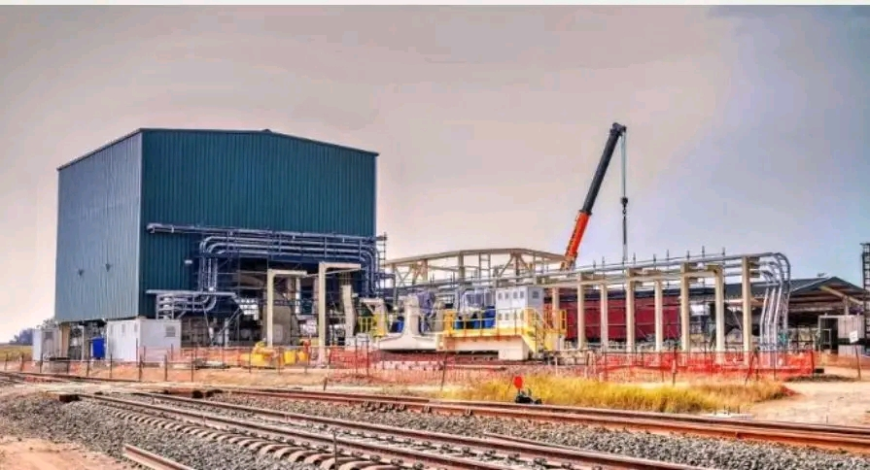ArcelorMittal Liberia Accelerates Railway Upgrades, Reaffirms Support for Shared Access

Monrovia, Liberia: ArcelorMittal Liberia is accelerating its investment in Liberia’s railway infrastructure, making significant upgrades to the government-owned corridor amid ongoing public debate over shared access and third-party usage.
The company’s expansion efforts aim to modernize transport systems while clarifying its stance on fair and inclusive access to national infrastructure.
To foster transparency and address misconceptions, ArcelorMittal recently invited over two dozen journalists on an exclusive tour of its railway facilities. The visit highlighted ongoing improvements along the line, including the construction of a modern railway station in Buchanan and the deployment of a new digital tracking system to monitor locomotive movement in real time.
These enhancements come as concerns persist that the company is attempting to monopolize the rail corridor. However, ArcelorMittal has reiterated its willingness to support a shared rail model—emphasizing that such access must follow a clearly defined and regulated framework that serves Liberia’s long-term economic interests.
Much of the debate stems from the 2021 rejection of an amended Mineral Development Agreement (MDA) by the House of Representatives. Lawmakers raised fears over potential monopolistic control. ArcelorMittal, however, insists the amended MDA included safeguards allowing the government to revoke its operating role if it obstructed third-party usage.
Independent investigations have since found no evidence that ArcelorMittal has denied rail access to other users. Analysts say the delays in implementing multi-user access stem from broader policy and administrative issues, not from the company’s conduct.
To date, ArcelorMittal says it has invested over $800 million into rail rehabilitation and expansion. The company continues to endorse the user-operator model outlined in the Third Amendment to its MDA—an internationally recognized framework used successfully in Brazil, Australia, and Guinea to balance investor control with shared access.
As part of this agreement, ArcelorMittal has accepted the Liberian government’s Rail System Operating Principles (RSOP), which ensure transparency, non-discrimination, and oversight by a newly established Rail Authority. This body will enforce standards, inspect operations, and manage access by all users under the multi-user system.
Company officials argue that Liberia can learn from Guinea’s mining sector, where companies finance and operate infrastructure while providing access to other users. The Guinean government benefits through taxes, royalties, and infrastructure expansion—an approach ArcelorMittal believes can work for Liberia if trust and clarity are maintained.
Looking ahead, ArcelorMittal warns that shifting control of rail infrastructure to an external operator could risk undermining investor confidence. With Guinea’s new Trans-Guinea Railway redirecting ore transport away from Liberia, company executives stress the need to preserve investor incentives that support long-term infrastructure development.
What's Your Reaction?








































































